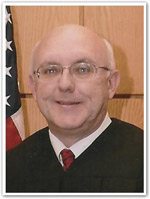News Sentinel: Ruling affirms broad definition of public records
This editorial was published in the Knoxville News Sentinel on March 31. It is reprinted here with permission:
Blount County Circuit Court Judge David Duggan struck a blow for open government this year by ordering Knox County to turn over nine emails that Law Director Bud Armstrong had deemed private. The News Sentinel had requested to see the emails, which were sent to or from county accounts, under the state’s Public Records Act. After Armstrong refused, the News Sentinel filed suit in October 2012, with attorney Richard Hollow handling the case on behalf of the newspaper and in the name of managing editor Tom Chester.
Duggan was handed the case after Knox County chancellors recused themselves. The suit dragged on for a year and a half as Armstrong filed a series of motions challenging the suit on technical grounds and seeking reconsideration of the judge’s ruling. Ultimately, though, the heart of the law director’s argument was that Knox County did not have to release the emails because the government business they discussed was not directly tied to Knox County’s operations.
But the law defines “public record” as any record made “in connection with the transaction of official business by any government agency.” The law also states that the statute should be broadly construed to give the public the fullest possible access to records.
As it turned out, the emails involved the Knox County Election Commission, the state Registry of Election Finance and the City of Knoxville Community Development Department.
“The statute simply does not require that the record be a record pertaining to the transaction of official business with the governmental entity holding the record,” Duggan wrote in his opinion. “The subject emails clearly are connected with the transaction of official business with a government agency .”
It is unfortunate that the case stretched out as long as it did. Armstrong blocked the release of the emails shortly before the state Registry of Election Finance’s hearing on the transfer of funds out of County Mayor Tim Burchett’s campaign account into his and his then-wife’s household accounts. The emails would have shed more light on what the mayor knew and when he knew it, to borrow from U.S. Sen. Howard H. Baker Jr.’s famous Watergate phrase.
The release finally came on March 7 of this year. It is probably coincidental that that was two weeks after the deadline for candidates to file to run for county office this year. Nevertheless, Burchett is running unopposed, and the contents of those public records will not be part of any campaign debate.
Armstrong insisted that he fought the case vigorously because he believed an important precedent was to be decided. We agree with that.
In making his ruling, Duggan emphatically backed broad interpretation of the Public Records Act.
“The Court concludes that to construe these emails as anything other than public records would be to ignore the statutory mandate to broadly construe these records in order to give the fullest possible public access to public records,” the judge wrote.
That endorsement will support government transparency for years to come.





